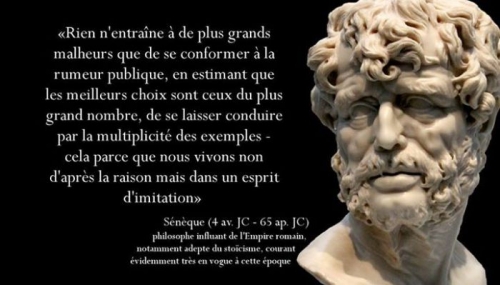Interview by Alberto Cossu and Filippo Romeo for www.vita.it
«I sincerely hope that the European Union in the current formula is ready to die. I am expecting the repetition of the Soviet story, the total collapse and the reorganization of the political landscape at the continental level»
Born in 1961 in the ex-Soviet Republic of Moldova, Iurie Roșca is a politician, journalist, author, editor and translator. In the Soviet period he was involved in dissident networks and afterwards, during the Perestroika period, he was one of the prominent figures in the anti-Communist and national movement, being one of the leaders of Moldova’s first alternative political party and founder of the first newspapers. From 1988 until 1994 he was deputy chairman of the party. From 1994 until 2010 – chairman of the Christian-Democrat People’s Party. Between 1994 – 2009 he was a MP, including twice deputy chairman of Parliament; in 2009 – deputy PM. He is now the president of People’s University, which is a school of political leadership, an international think-tank and printing house. His political beliefs can be summed up as such: Orthodox, conservative, traditionalist.
We met him to better understand Moldava’s situation and to share some considerations about the new international outlook
You used to be a very successful political leader since the last period of URSS. When was the Christian-Democratic People’s Party of Moldova founded? Could you please say a few words about the initial period?
Oh, this is such a long story. Our political movement was founded in 1988, in Perestroika period, as an anticommunist, nationalist and pro-Independence party. It was a fantastic period, with indispensable idealism and romanticism at first. But anyhow, the disaggregation of the Soviet Empire does not happen twice and I am happy that I was totally engaged in this historic confrontation. We, as a former dominated nation, as a captured nation suffered not only political and economic pressures of communist regime. We had very harsh national, ethno-linguistic, cultural pressions, a very strong process of assimilation and Russification. That is why this historical moment was for us like a triumph of nations. In several years, we obtained the adoption of the Romanian language (also called the Moldovan language as a consequence of the Soviet occupation) as state language, the return to the Latin alphabet (the Russian alphabet was imposed to us during the communist period) and the country’s independence. It was a period of street protests, of samizdat, of new forms of media, of organization of political parties.
Did your party, after such a long presence in national parliament, lose the elections in 2009? What kind of mistakes can you enumerate in your political strategy?
If we keep in mind the fact that my party was the longest-running party in the ex-Soviet space as a parliamentary presence (five consecutive legislatures from 1990 to 2009), we could speak of a unique success, not a failure. Remember, initially, in 1988, we were a Political Movement that supported Gorbachev’s Perestroika, in 1989 we became the Moldovan Popular Front (as it was in vogue throughout the Soviet Empire), then in 1999 we became Christian Democrats so as now to get to the endpoint of our ideological evolution – Conservatism.
Moldova is ranked as one of poorest countries of Europe. Could you please outline a picture of the political and economic situation?
After the USSR was dismantled, the Western craftsmen of the transition from the gloomy communist past to the bright liberal future ignored any difference and imposed a universal recipe for all ex-communist countries. the well-known concept of ”the West and the Rest” ,impregnated by classical eurocentrism, was seen by the winners of the Euro-Atlantic centers of power as a necessary way of acting. And since every nation in the world is left with only one way of development, the ex-communist countries have been invited to make a civilizational leap and to adapt its own societies to the standard model. It means to repeat the path traversed by the West through Modernity: mass democracy, market economy and human rights, plus secularism, open borders, and alignment with the only civilization on the upper stage – the West.
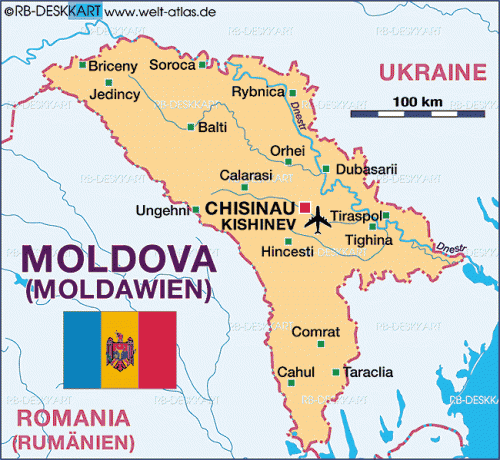
Some twenty-five years ago nobody in both areas, East and West, had any other approach on this new geopolitical and historical reality. The East must be westernized, otherwise it cannot overcome its communist past, achieve prosperity and become a normal, developed society. The collapse of the communist system led to the creation of an intellectual vacuum in the respective societies. And this vacuum was immediately filled with the liberal paradigm, which seemed perfect, indisputable and axiomatic.The tragicomic situation that arose after the fall of the USSR can be characterized as such. After 50 years of the Cold War between East and West, the West defeated the East who capitulated. And for the first time in history, the defeated side received the conditions of capitulation in a state of happiness, and accepted as a gift the plan of geopolitical and economic colonization.
Thus, Moldova also bought a ”one way ticket” for the train that led us to prosperity. Year after year we executed all the „precious indications” from Western power centers, such as the IMF, the World Bank, the State Department, the EU etc. We copied the institutions, the legislation, the economic model, etc. We have achieved total liberalization of prices, we have made mass privatization, we have opened the internal market for Western capitals, goods and services, we have equaled the foreign entrepreneur with the local one. We did everything in order to respond to all criterias suggested (or imposed) from abroad. But the promised state of general happiness still did not come.
Could you please tell us which economical model dominates at present in Moldova?
Moldova is not a productive, but a consumer economy. How does it work? Very simple. Moldovans work abroad, on the external labor markets to earn money which is spent in Moldova to buy goods produced abroad which have completely invaded our internal market. How can a local businessman compete with, say, a German or a Turkish one? Difference in production capacities, know-how, access to cheap credits, etc. dooms the local entrepreneur into a loser right from the start. Moldova has signed the ”free trade agreement” with the EU and with Turkey too – a well done operation in favor of our big brothers. It is worse for us, the local population whom these glass beads and illusions are sold to in exchange for natural resources and the key sectors of the national economy.
I confess that I spent two decades of political activity and assiduous reading in four languages until I realized why things in my country are going from worse to worse. When I realized that the West had actually applied to the ex-communist space the same treatment that the Third World has long suffered, everything became extremely clear. When principle of ”kicking away the ladder” (Friedrich List) or ”comparative advantages” of “freetradism” (“laissez-fairisme”) has been fully applied, then Moldova’s chance of emerging from the crisis strictly following the imposed rules from the outside becomes illusory. By blindly following ”friedmanism” and the advices from the Chicago Boys, by assuming quasi-religious principles of the so-called ”Washington Consensus”, Moldova became a classical poor country as so many other countries around the world which were guided to go in the same direction.
Your interpretation contradicts in radical way the official Western discours on economical issues of the post-communist area. Usually your countries are seen as failed states because of internal causes like corruption, luck of deep reforms, weak democratic insititutions and the absence of strong and independent justice. You want to say that this approach is false?
Not necessarily, but obviously partial, tendencious and vicious. All of these factors exist. But they are the effect, not the causes of our problems. The major causes of Moldova’s disaster are other than the dominant neoliberal discourse presents it. The first is the excessive obedience of the ruling class to external power centers. The „development partners” that lend to the Republic of Moldova an enormous amount of money does not represent charity foundations, but tools of global plutocracy, which seeks to achieve astronomical gains.
External financing in exchange for free trade, adjustment of domestic legislation to the detriment of local business and in the interest of global corporatocracy, the tailoring of monetary, customs, fiscal, budgetary and social policies have substantially reduced the state’s ability to promote independent economic policies.
The truth is that it is precisely the forced dressing of the Republic of Moldova in that suffocating “golden straight jacket” (Thomas Friedman) that strangles any chance of economic recovery in the country. Moldova, like so many other countries, subjected to „structural reforms” and neo-liberal adjustments predicated on „market fundamentalism”, has yielded for a long time its sovereign right to manage its own economy. Under these circumstances, the succession in governing of various parties and coalitions, whether they are totally corrupt or relatively decent, cannot lead to radical positive changes.
What is your stance regarding NATO versus the neutrality which is established by your Constitution and what is your perception of the the Russian Federation?
Moldova must not to aspire to become a member of NATO or a Russian-centered military and security group of states, but an independent, neutral, and correct international player. This idea can become part of our national strategy or, if you like, part of our dream. Because a nation which does not have its own major dream is condemned to be just a consumer of foreign ideas and concepts, and, last but not least, the object of foreign interests which do not necessarily coincide with our own.
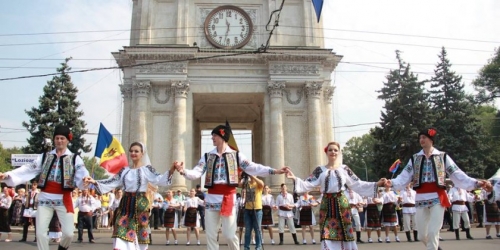
Neutrality must be a key element of foreign policy. One of the main targets of Moldova has to be to affirm its vocation as a neutral country at an international level, in accordance with our Consitution. It means not only to avoid the involvement in the major geopolitical conflicts of big international actors such as Russia and the USA. Moldova could and should initiate or reinitiate the movement of non-aligned countries in the new geopolitical context by inviting different countries which share the same approach to participate in this process. We have to return to the experience of the Bandung Conference (April 18–24, 1955, Indonesia), to develop and adapt these principles to new historical conditions in order to be strong enough in the dialogue with great powers. Without this kind of international solidarity, without our original and wise contribution to a new international architecture, countries like Moldova have very thin chances of becoming relevant and respected international actors. This idea was suggested to me by French thinker Hervé Juvin in our personal discussions and through his books and articles.
At what point is the negotiation between Moldova and Transnistria? What is your stance about the mentioned conflict that can be named „frozen”. How present is the Russian factor or the ”Russian threat” this region?
Of course, the key of the Transisntrian conflict is in Moscow. Yes, Moldova is aspiring to obtain the withdrawal of Russian military troops from Transnistria. Their presence affects our territorial integrity and creates a lot of economic, social and administrative problems. But if we are responsible people, we have to see the whole picture of the region. By this I mean the global and implicitly the regional balance of forces. Several years ago I asked one Russian diplomat, former ambassador in our country whose name is not appropriate mentioning here (being a private discussion), ”When will Russia withdraw its military presence from Moldova”? The answer was quick, direct and sincere. „Mr. Roșca, look at the map. Americans are in Romania. We are constrained by the strategic circumstances to remain in Moldova”.
In this situation Moldova has to think deeply on how to turn a geopolitical disadvantage into an advantage. Surely not through aggressive anti-Russian rhetoric, nor by assuming the role suggested by Americans to become a NATO ally against Russia. The Republic of Moldova is a neutral country. It ought not admit the role of the ally of the Russians against the Americans, nor the ally of the Americans against the Russians. Moldova must overcome its dishonorable role as an object of international relations and become an independent, fair and predictable subject of international affairs. It’s not an easy task. But if Moldovan political leaders will not have the clairvoyance, the courage and the diplomatic tact to follow this path, the posture of our country as the vassal of the great powers or the exchange currency between them is inevitable.
Moldova seems set to become an attractive destination for the investors coming from the Arabic Countries. Which are opportunities and threats originated by the likely inflow of direct investments?
Yes, it is the biggest catastrophe for our country. After the government in 2009 came to power, the contacts with wealthy Arab countries form the Arabic peninsula which is rich in petro-dollars became the first priority. The delegations of our government are often travelling to the region (namely to Qatar, United Arabic Emirates, Saudi Arabia) and vice versa. It seems that the Arab sheikshave managed to corrupt the clique of mobsters that have been leading Moldova in the last few years.
The dirtiest business set up by the influential Gulf leaders and the local mafia in Moldova can be seen in a series of laws and government decisions by which five thousand foreign or stateless citizens plus their families are to receive Moldovan citizenship in return for an investment. The money would be transferred either to a government development fund (100 000 euros) or to private business (250 000 euros). The domains listed for private investments in the official acts are real estate and the development of the public financial sector and public investment by procuring and maintaining state securities. The investment in both these sectors have to be maintained for no less than 60 months. It means five years.
So, to conclude, some of the richest people on the planet from the Persian Gulf will maintain this kind of engagement only for five years and after that they are free to sell all goods that they buy for pennies for infinitely higher amounts. Good business with the Banana Republic of Moldova!
Now the most interesting detail of this dirty business. In accordance with our law, local and foreign investors have the same rights to invest in our economy. With only one fundamental exception – agricultural lands which can be sold only between Moldovans. So, our rulers are ready to sell the most precious national resource – our lands. More than that. This kind of new comers will be able to participate in our political process, to build parties, to buy media resources etc. Simply speaking, if in the case of Western Europe Muslim invasion is organized through millions of poor Arabs, in the case of Moldova, the Muslim invasion will be carried out through the Arab sheikhs, the billionaires from Gulf. There will be the construction of mosques in the country of 95 percent of Orthodox Christians, interreligious conflicts and permanent political instability. A deadly blow is expected on our economy, but also on our tradition and culture. That is why we can state without any exaggerations that our government is a traitor of the national interests.
What is your opinion about the political situation within the EU?
I sincerely hope that the European Union in the current formula is ready to die. Some people hope that it is possible to reform this bureaucratic, plutocratic, antinational and anti-European entity. I don’t. I am expecting the repetition of the Soviet story, the total collapse and the reorganization of the political landscape at the continental level. This model will be based on national states, peaceful cooperation between the European countries, and overcoming the dividing lines between Europe and Russia. The new wave of populist, sovereignist, identitarian movements becomes stronger with each electoral campaign in many countries. As I said before, I saw the fall of the USSR, I hope to see the fall of the EU.
Source: http://www.vita.it



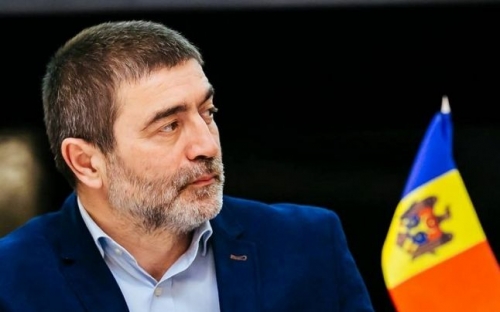

 del.icio.us
del.icio.us
 Digg
Digg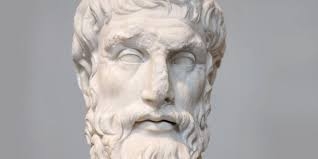
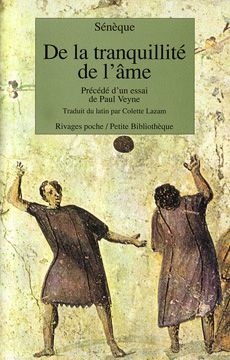 « On était exempt de ces fléaux quand on ne s’était pas encore laissé fondre aux délices, quand on n’avait de maître et de serviteur que soi. On s’endurcissait le corps à la peine et au vrai travail ; on le fatiguait à la course, à la chasse, aux exercices du labour. On trouvait au retour une nourriture que la faim toute seule savait rendre agréable. Aussi n’était-il pas besoin d’un si grand attirail de médecins, de fers, de boîtes à remèdes. Toute indisposition était simple comme sa cause : la multiplicité des mets a multiplié les maladies. Pour passer par un seul gosier, vois que de substances combinées par le luxe, dévastateur de la terre et de l’onde ! »
« On était exempt de ces fléaux quand on ne s’était pas encore laissé fondre aux délices, quand on n’avait de maître et de serviteur que soi. On s’endurcissait le corps à la peine et au vrai travail ; on le fatiguait à la course, à la chasse, aux exercices du labour. On trouvait au retour une nourriture que la faim toute seule savait rendre agréable. Aussi n’était-il pas besoin d’un si grand attirail de médecins, de fers, de boîtes à remèdes. Toute indisposition était simple comme sa cause : la multiplicité des mets a multiplié les maladies. Pour passer par un seul gosier, vois que de substances combinées par le luxe, dévastateur de la terre et de l’onde ! »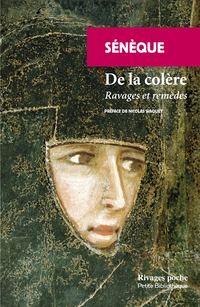 Et d’évoquer la pédophilie festive de nos romains diners :
Et d’évoquer la pédophilie festive de nos romains diners :